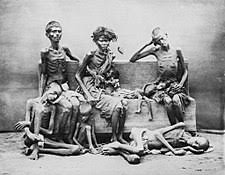
Rajasthan, the seventh most densely populated state in India, has a total population of approximately 69 million people — out of which 10 million are poor. While Rajasthan has witnessed a fall in poverty rates since 2005, it is still a low-income state and some areas have yet to grow and experience relief from poverty.

But who is affected the most? Yes, none other than young children who give up their lives for a future that is never going to be bright. They grow up in messy conditions, falling prey to the ugly side of life. The same is passed on to their future generations and then the cycle continues. Have you ever thought about what the future will hold if this carries on?
While the government is taking various initiatives and many organizations are coming forward to improve the lives of children in Rajasthan, it is still not enough. Existing strategies are insufficient to tackle child poverty as they do not account for the realities on the ground.
In India, there is a key problem with mindset. People who live in poverty often believe that if they send their children to school, they will not be able to earn a livelihood. They fail to see the brighter side of getting an education for a better quality of life. And this is one of the most common reasons for an increasing number of school dropouts.
This is why I started Pratham Shiksha, a charity that aims to promote basic education among underprivileged children in the slums of Jaipur, Rajasthan. To tackle the issue of education vs. getting a job, we provide flexible timings that allow school students to study and also work.
After all, education is a weapon to succeed in life and it should not be overlooked, but we must also understand the economic realities of life in poverty and the need for an income. Illiteracy is probably the primary source of problems that India faces today, and educating the people is the only way out. It will not only improve the overall standard of living, but also help in better decision-making.
Poverty is no less than a nightmare. But it is only the people who are making it even worse by not trying to change their situation. If impoverished people are educated, poverty rates will go down, the economy will prosper and health conditions will improve. On top of that, if people start realizing the hardships of poor people and come forward to help them, there is no way India cannot be at the forefront of nations.
Health: Another repercussion of poverty is health. The lack of or no access to nutritional food weakens the immune system of poor people. In addition, lack of sanitation makes their bodies vulnerable to disease that can be mild and sometimes life threatening. The worst part is that they will usually not have enough money to afford medicines for treating such conditions.
Society: People living in poverty often do not have access to fancy homes, which puts them either in the slums or on the streets. And this, in turn, impacts the society. How? When poor people do not have jobs to earn a livelihood, enough money to survive and well-equipped homes to live in, they resort to unethical practices — such as kidnapping, theft and prostitution — for money. This leads to the feeling of insecurity among other people in the community, leading the shunning of those who live in poverty.
Education: Like food and accommodation, poverty often means a person cannot afford to go school. This is why the slum population of India is trapped in a vicious circle that starts in poverty, leads to illiteracy and again comes back around to poverty. When poor people are deprived of the basic amenities of life, there is no way they can put their children through school or even carry that mindset — the power of education. In fact, many people in this situation do not feel the need for education in their lives.
Illiteracy is no less than a curse and it can have a huge impact: it causes poverty; creates unawareness among people about their basic rights; leads to crime; it is the root cause of increasing population numbers; and it is a big hurdle in the way of growth and development, deterring a country from prospering.
Although education alone cannot eradicate poverty, it is seen as an important tool that can bring a change in the lives of millions of poor peopl
Hi! I am a robot. I just upvoted you! I found similar content that readers might be interested in:
https://www.fairobserver.com/region/central_south_asia/india-poverty-global-goals-rajasthan-sustainable-development-world-news-latest-34024/
Downvoting a post can decrease pending rewards and make it less visible. Common reasons:
Submit